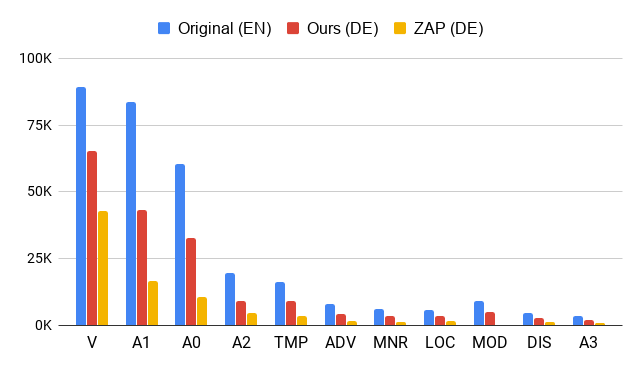Semi-Supervised Bilingual Lexicon Induction with Two-way Interaction
Xu Zhao, Zihao Wang, Hao Wu, Yong Zhang
Machine Learning for NLP Long Paper

You can open the pre-recorded video in a separate window.
Abstract:
Semi-supervision is a promising paradigm for Bilingual Lexicon Induction (BLI) with limited annotations. However, previous semisupervised methods do not fully utilize the knowledge hidden in annotated and nonannotated data, which hinders further improvement of their performance. In this paper, we propose a new semi-supervised BLI framework to encourage the interaction between the supervised signal and unsupervised alignment. We design two message-passing mechanisms to transfer knowledge between annotated and non-annotated data, named prior optimal transport and bi-directional lexicon update respectively. Then, we perform semi-supervised learning based on a cyclic or a parallel parameter feeding routine to update our models. Our framework is a general framework that can incorporate any supervised and unsupervised BLI methods based on optimal transport. Experimental results on MUSE and VecMap datasets show significant improvement of our models. Ablation study also proves that the two-way interaction between the supervised signal and unsupervised alignment accounts for the gain of the overall performance. Results on distant language pairs further illustrate the advantage and robustness of our proposed method.
NOTE: Video may display a random order of authors.
Correct author list is at the top of this page.
Connected Papers in EMNLP2020
Similar Papers
Q-learning with Language Model for Edit-based Unsupervised Summarization
Ryosuke Kohita, Akifumi Wachi, Yang Zhao, Ryuki Tachibana,

An Unsupervised Sentence Embedding Method by Mutual Information Maximization
Yan Zhang, Ruidan He, Zuozhu Liu, Kwan Hui Lim, Lidong Bing,

A Simple Approach to Learning Unsupervised Multilingual Embeddings
Pratik Jawanpuria, Mayank Meghwanshi, Bamdev Mishra,

